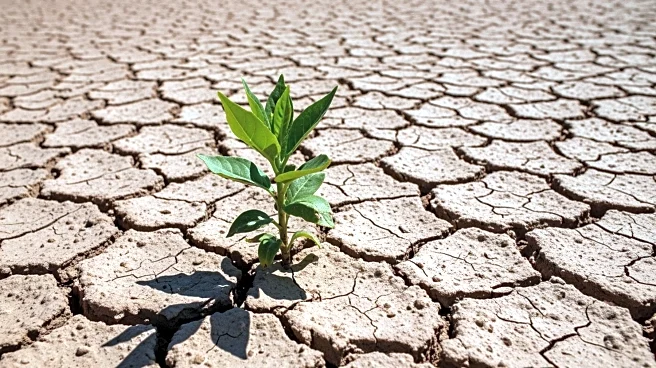What's Happening?
Mexico's agricultural sector is facing challenges as the government continues to rely on subsidies rather than fostering productivity and development. Despite promises of food sovereignty, Mexico imports
significant amounts of grain, and the countryside struggles with declining production. The dismantling of key agricultural institutions like CONASUPO and ASERCA has left producers vulnerable to international market fluctuations. The government's approach has been criticized for prioritizing welfare over sustainable development, leading to a fractured agricultural system dominated by foreign corporations.
Why It's Important?
The situation in Mexico's agricultural sector has implications for food security and economic stability. The reliance on imports and foreign-controlled supply chains highlights the need for effective agricultural policies that promote domestic production and self-sufficiency. The challenges faced by Mexican farmers reflect broader issues of economic inequality and the impact of globalization on local industries. The government's approach may affect Mexico's ability to compete in international markets and ensure food sovereignty.
Beyond the Headlines
The decline of Mexico's agricultural sector underscores the importance of strategic investment in technology and infrastructure to support local producers. The situation raises questions about the role of government in fostering economic development and addressing structural inequalities. The reliance on foreign corporations for agricultural exports highlights the complexities of globalization and its impact on national sovereignty.










